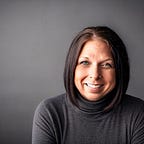The Tale of Two: Moving beyond academics
Sometimes it takes examples to figure out what we aren’t doing, and celebrate what we are doing and doing well. The story of these two students is one example of the inequities that exist, neither was left struggling but one had a game changing opportunity. The question isn’t how this is happening, the question is why is it not happening everywhere. It’s time to dream. With that, let me share a few thoughts and the story of Katie and Matthew.
Schools have traditionally focused solely on academic subjects, prioritizing the acquisition of knowledge and understanding. However, there is a growing recognition that education must go beyond academics. It is crucial for schools to provide students with opportunities to develop hands-on skills and gain practical experiences.
Today, schools are being called to incorporate a more holistic approach to education, one that includes applied learning and exploration of developmentally appropriate opportunities. This means offering students opportunities to engage in real-world experiences, problem-solving, critical thinking, and collaboration.
The way that schools (and states) are making these learning experiences possible show some disparities that are important to understand. With that I want to share the stories of two recent high school graduates.
Meet Katie.
Katie is a recent high school graduate who had the opportunity to participate in a medical club provided by her high school. In this club, she and her peers supported the school nurse, assisted the athletic trainer, and organized blood drives. During her junior year, she attended an informational meeting about freely available medical programs at the local community college. Taking advantage of these courses, she obtained two professional credentials and licenses by the time she finished high school. One was for phlebotomy, allowing her to legally draw blood, and the other was for Certified Nursing Assistant. Both roles have a current pay range of $18–24 per hour. In addition to these credentials, Katie gained global experience by volunteering with medical professionals in five different countries. As she applied to colleges, she received positive feedback and interview requests from campus health centers, local hospitals, and more.
Katie had demonstrated competence, initiative, capacity to earn professional level credentials, and a global understanding that included volunteer training in empathy, diversity, equity, and inclusion, and privacy practices.
Meet Matthew
Matthew is a recent high school graduate. During high school, he was involved in theatre, track, and a few other clubs. He also completed a two-semester course that included nine weeks of mock-trial style training in basic patient care. However, when applying to colleges, he received feedback that he lacked experience in real-world problem-solving.
Matthew showed a strong understanding of basic patient care and achieved high scores in the course. He even earned a knowledge certificate from the provider working with his high school. However, because he had not yet demonstrated the application of that knowledge, he was not accepted as a student trainer or assistant in the campus health centers.
Both Katie and Matthew were passionate and intelligent students who excelled academically and held leadership roles in sports and other activities. What set them apart during the college application process was not a lack of academic success, but rather a lack of ability to thrive in practical settings and effectively engage with individuals from diverse backgrounds.
What does this tale of two show us? The story of these students highlights the importance of integrating hands-on and applied learning experiences into the high school curriculum.
This approach can develop a range of essential skills for future success. Looking at Katie’s peers, it is clear that partnerships with community colleges and applied learning opportunities foster skills such as creativity, communication, adaptability, and resilience.
By providing developmentally appropriate, low-stress learning opportunities, we can create experiences that allow students to explore their interests and passions, fostering a sense of purpose and motivation.
To ensure that students are prepared for the challenges of the modern world, schools should adopt a balanced approach that combines academic subjects with practical experiences. This way, we can empower students to become well-rounded individuals with the knowledge, skills, and experiences necessary for success in today’s post-high school landscape.
To me, this is an equity issue.
Katie and Matthew had access to everything at no cost. How can we make these experiences and opportunities available to every student? We have not yet reached a point where every community has equal access.
It is time to find a way to make that happen.
Jody is a thought leader and activist for digital learning. She serves an International community as a relentless advocate for quality learning that ignites opportunity for every student. Keep up with her work at jodybritten.com.
